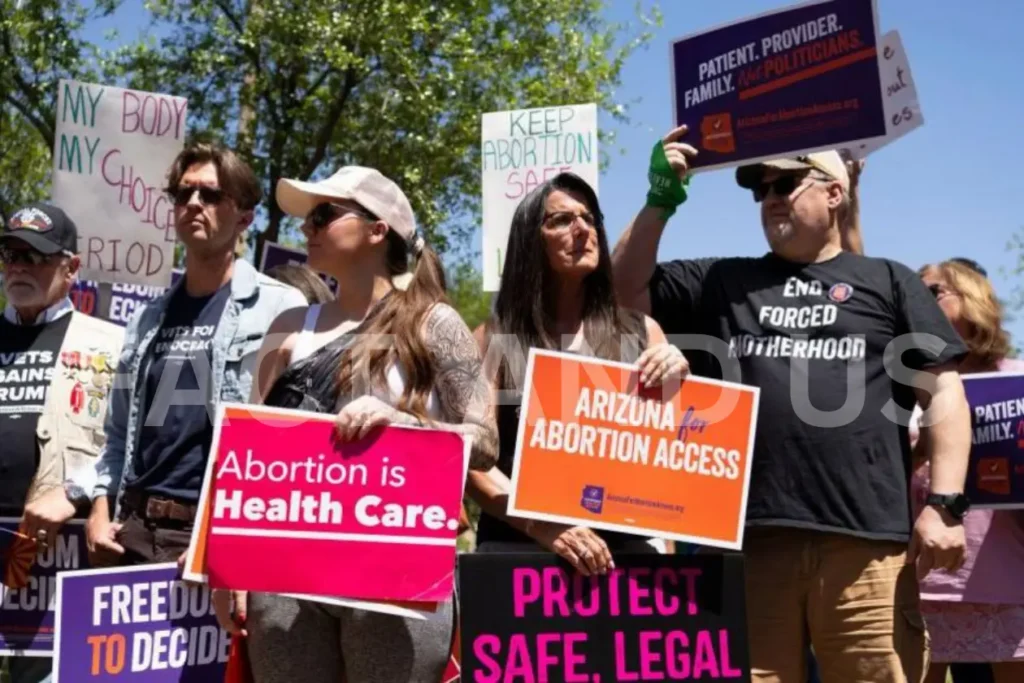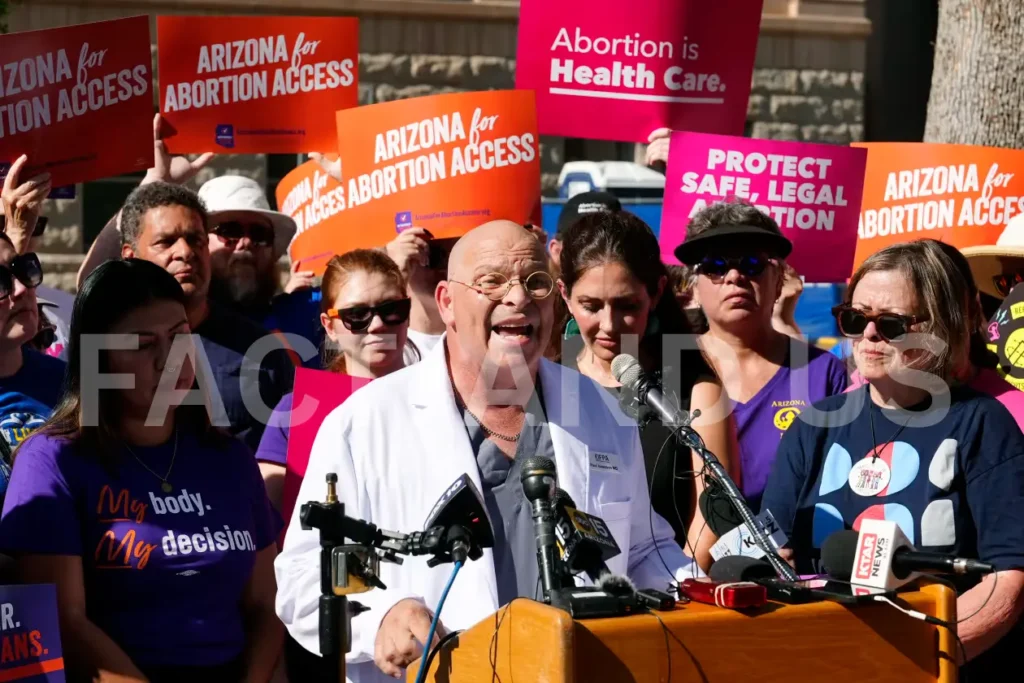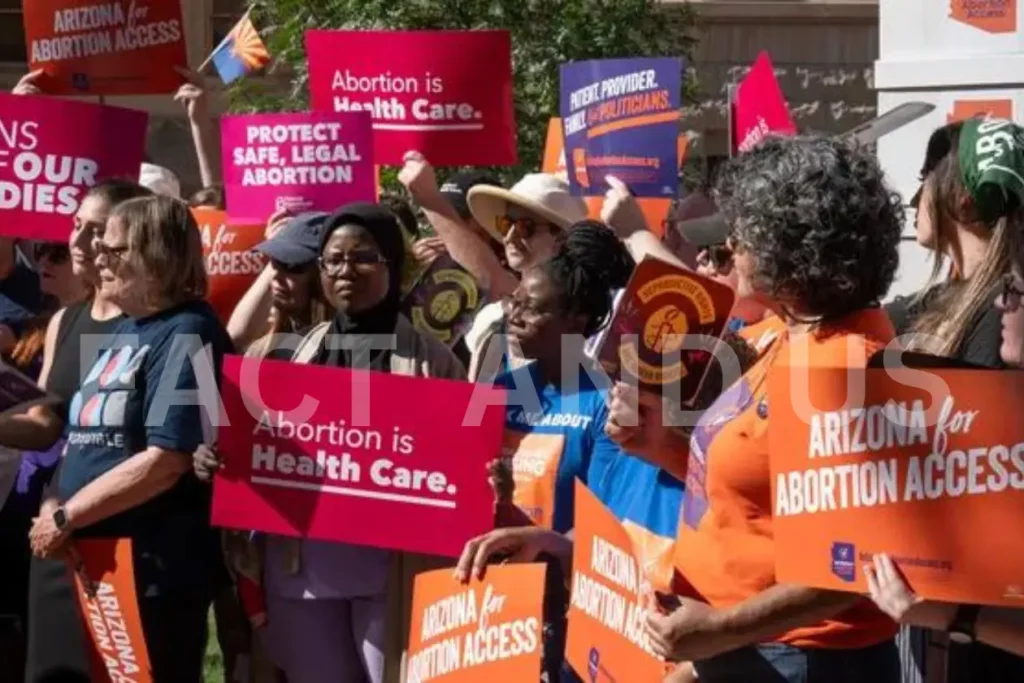Arizona’s Supreme Court has ruled that a fetus can be described as an “unborn human being” on ballots when voters decide this November whether to make abortion a constitutional right.

Arizona abortion vote
Abortion has become the defining political issue in this presidential election year, especially in the key swing states like Arizona, where President Joe Biden defeated Republican Donald Trump by just 10,000 votes in 2020.
The Arizona ballot initiative would provide access to abortions for pregnancies up to 24 weeks after conception, a significant increase from the state’s current 15-week limit. It would also carve out exceptions to “protect the life or physical or mental health of the pregnant individual,” which critics argue could become a legal loophole to allow abortions after fetal viability.
Language drawn up by a Republican-controlled legislative council referring to fetuses and embryos as “unborn human beings” was deemed to “substantially comply” with nondiscrimination requirements, the lawsuit filing said. The secretary of state estimated that 577,971 valid signatures were submitted in favor of adding the initiative to the Arizona ballot, which is by far an amount greater than the amount necessary to qualify at 383,923 signatures.

After abortion rights were overturned by a deeply conservative-dominated US Supreme Court in June 2022 and many Republican-led states reacted quickly to restrict or downright ban the procedure, that group Arizona for Abortion Access said voters would “be subjected to biased, politically charged words developed not by experts but by anti-abortion special interest organizations.”.
It added it is “deeply disappointed” by the ruling of the state supreme court, which supported the state Republican lawmakers. House Speaker Ben Toma, who was among the Republicans who applauded the decision, has stated that the move intends to help voters understand it better, the Associated Press reported. The judges appointed by the Republicans have assured AP that a full opinion will be available later. Women in Arizona cannot end a pregnancy after 15 weeks, under a law signed by Republicans in 2022 that allows for some exceptions.


That law was passed after the US Supreme Court’s reversal of Roe v. Wade, a landmark ruling that rescinded the nationwide right to abortion and set in train a nationwide debate over reproductive rights. In Arizona specifically, this reached a head earlier this year when state lawmakers battled over a 160-year law that would have almost totally banned abortions, without exceptions in instances of rape and incest.
The state supreme court decided in April that the law dating back to 1864 could stand. The measure was being celebrated for only a little while by one of the state’s anti-abortion groups as a “tremendous victory” when the state Democrats turned over two Republican senators into voting the repeal bill with two more Republicans and an absent vice president. The issue has turned center stage for both the national and the state-level Democratic campaigns for the November 5 election.
That is the day of the presidential election, as well as the Democratic-backed ballot measure on abortion of the type that passed in Arizona last month, which was established to move forward earlier this week.
Most of the states where these ballots are happening are battlegrounds that could ultimately impact the outcome of the presidential race.

Meantime, many Republican politicians are siding with religious conservatives, who seek to ban abortion or greatly limit it in the United States. In Arizona, voters are also to vote on an abortion ballot to decide whether the state constitution should be amended to allow a woman to end a pregnancy up to the time at which a foetus would have survived outside the womb if this were possible. That’s typically around 23 or 24 weeks. The move would stop future legislation from being introduced that would prohibit access to abortions—a move opponents argue goes too far.
In a case that bears more than a little resemblance to Alabama’s Supreme Court ruling, Arizona’s top court has made it lawful for a foetus to be described as an “unborn human being.
Stay connected with Fact and US for more such news.
